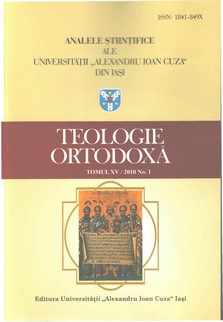The Foreign Policy of Tsar Peter the Great of Russia and Its Influence upon the Romanian Orthodox Church in the Romanian Principalities
The Foreign Policy of Tsar Peter the Great of Russia and Its Influence upon the Romanian Orthodox Church in the Romanian Principalities
Author(s): Daniel Niţă-DanielescuSubject(s): Christian Theology and Religion
Published by: Editura Universităţii »Alexandru Ioan Cuza« din Iaşi
Keywords: Church; Romanian Principalities; Russia; Peter the Great
Summary/Abstract: At the end of the 17th century and the beginning of the next one, the diplomatic confrontations between the Christian powers and the Ottoman Empire increase their intensity and complexity, especially after the Turks’ defeat in 1683, under Vienna’s walls, and the founding, the next year, of the Holy League under the Pope’s protection. An important role in this context starts to be played by Russia, after tsar Peter the Great’s rise to power. The Romanian Principalities are motivated in asserting their own interests on the side of the new Eastern power, out of both a will of emancipation from the Ottoman rule, whose excesses had led to consequences that needed to be removed, and an Orthodox solidarity that had been consistently manifested up until then as well. The desire to cultivate a policy of equilibrium between the Great Powers holding interests in the Romanian area was also to be considered, given the necessity to preserve specificity and identity. Yet, the Russian politics of the time, particularly in the aftermath of the failed anti-ottoman campaign of 1711, beyond the official rhetoric and the propaganda gestures, still focuses on the efforts to consolidate domination in the northern territories, near the Baltic Sea, where the capital of the Russian Empire is transferred in 1713.
Journal: Analele Ştiinţifice ale Universităţii »Alexandru Ioan Cuza« din Iaşi. Teologie Ortodoxă
- Issue Year: 2010
- Issue No: 1
- Page Range: 47-68
- Page Count: 22
- Language: English

